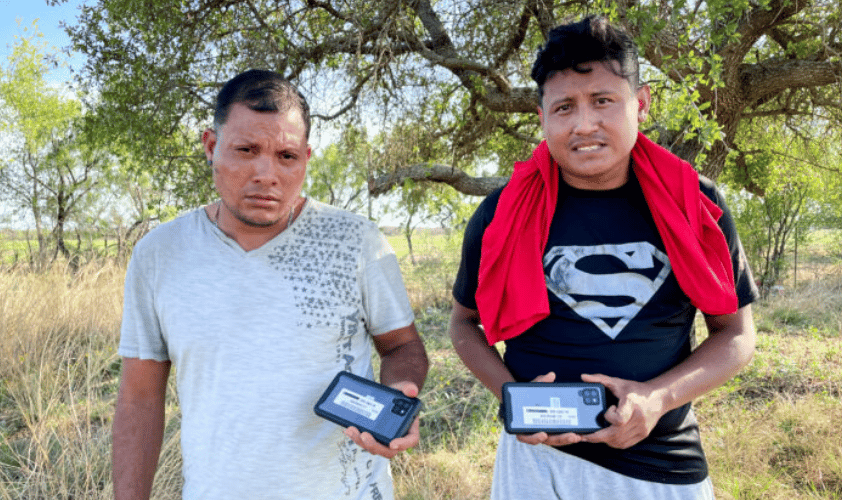
U.S. Department of Homeland Security agencies issued more than 255,000 smartphones to illegal aliens during fiscal year 2022, according to data on the Immigration and Customs Enforcement (ICE) website.
The phones are trackable and the individual is responsible for checking in with ICE on a regular basis, often by sending in a geo-tagged photo of themselves.
The cost for the 255,602 phones and their accompanying technology is $245,377 per day—almost $1,000 per illegal alien per day. Over a year, that’s $89.5 million.
The majority of the phones were issued to single adults.
ICE has failed to provide any data on the compliance rate of the smartphone program or on how many aliens have absconded from it, despite repeated requests by The Epoch Times.
ICE began issuing the smartphones within the past year as border stations became overwhelmed. Agents started processing illegal aliens under a newly created category called “Parole+ATD.” ATD is an “alternatives to detention” program, which is acting as a workaround of the legal requirement to detain illegal aliens.
By law, parole is designed to be used on a “case-by-case basis” and for “urgent humanitarian reasons or significant public benefit,” according to the Immigration and Nationality Act.
The status allows foreign nationals “who may not otherwise be admissible to the country under the immigration laws” to live and work in the United States temporarily “without being formally admitted to the country and without having a set pathway to a permanent immigration status,” according to a 2020 Congressional Research Service report.
Under parole status, illegal immigrants don’t have to provide Border Patrol with evidence of credible fear for asylum and are permitted entry without any preconditions, except a quick background check in the U.S. crime database.
A Customs and Border Protection spokesman previously told The Epoch Times that the parole designation allows for overwhelmed Border Patrol stations to process and release large numbers of illegal aliens “significantly faster” than the more involved traditional system, which releases an illegal alien with a notice to appear that includes a court date for their first immigration hearing.
In addition to the smartphones, nearly 41,000 additional illegal aliens in FY 2022 were fitted with ankle monitors that have built-in GPS tracking. Almost 20,000 others were placed in another type of alternative to detention program.
‘No Consequences’
U.S. Border Patrol Chief Raul Ortiz said in July that a lack of consequences for illegal entries is a large driver of the border crisis.
“In my experience, we have seen increases when there are no consequences,” Ortiz said on July 28 during a deposition for a lawsuit against the federal government brought by Florida Attorney General Ashley Moody.
Ortiz said that as long as the Biden administration isn’t detaining or removing most illegal immigrants, the numbers will increase.
“There is an assumption if migrant populations are told that there’s a potential that they may be released, then yes, you can see increases,” he said.

In addition, the deportation cases for tens of thousands of illegal immigrants are being dismissed before getting to court because Department of Homeland Security (DHS) officials are failing to file the requisite paperwork, a recent report reveals.
One out of every six new cases (16.6 percent) is being dismissed due to the failure to follow due process, according to the immigration court docket tracker Transactional Records Access Clearinghouse (TRAC) at Syracuse University.
For the six-year period from fiscal year 2013 through fiscal 2018, fewer than 1 percent of the cases, or 1,221, were dismissed due to DHS failure to submit the necessary “notice to appear” paperwork. The notice includes the date of the illegal immigrant’s first court hearing.
The number of dismissals due to the same paperwork failure has increased dramatically every year since then, with 47,330 cases so far in fiscal 2022 with three months of data outstanding, according to the TRAC report.



